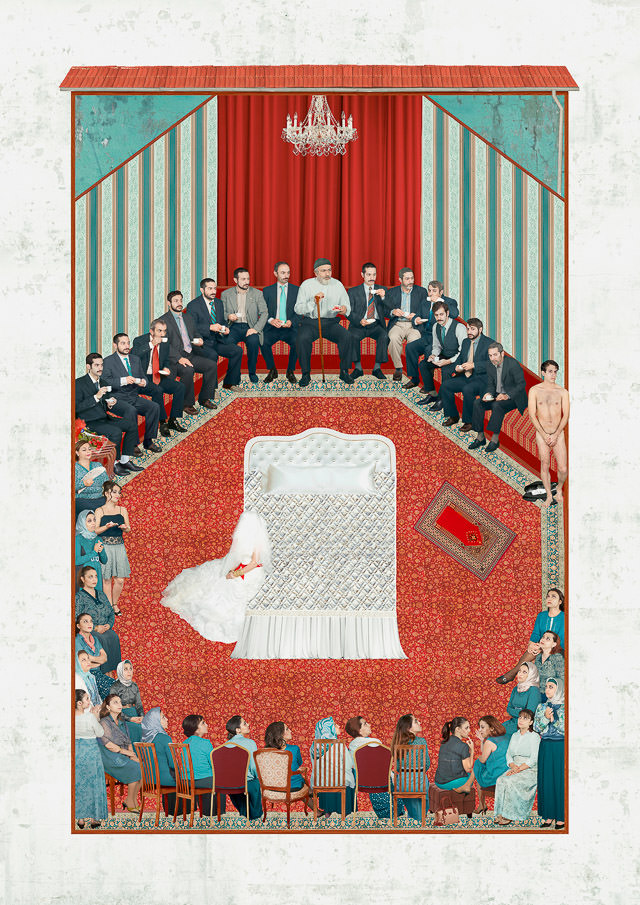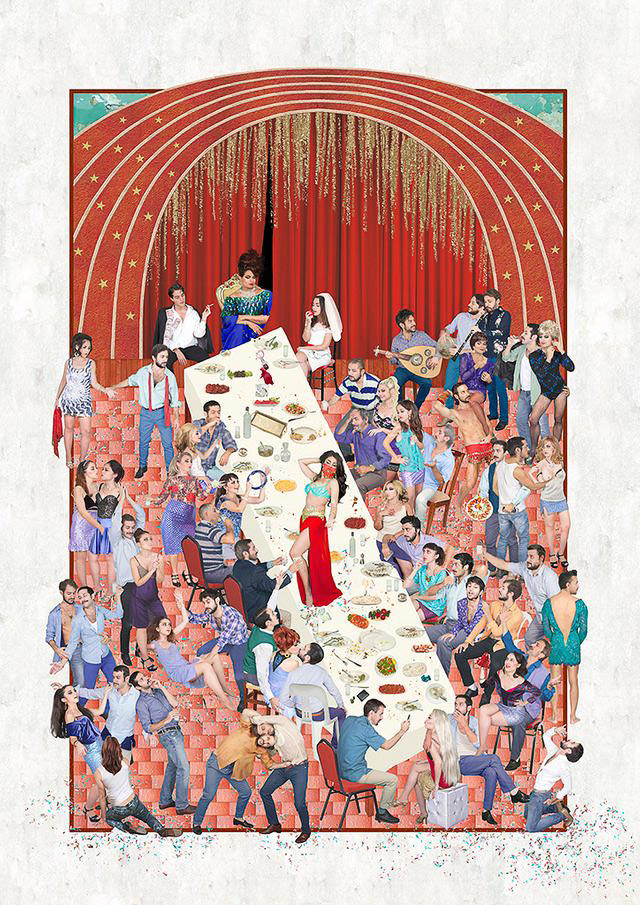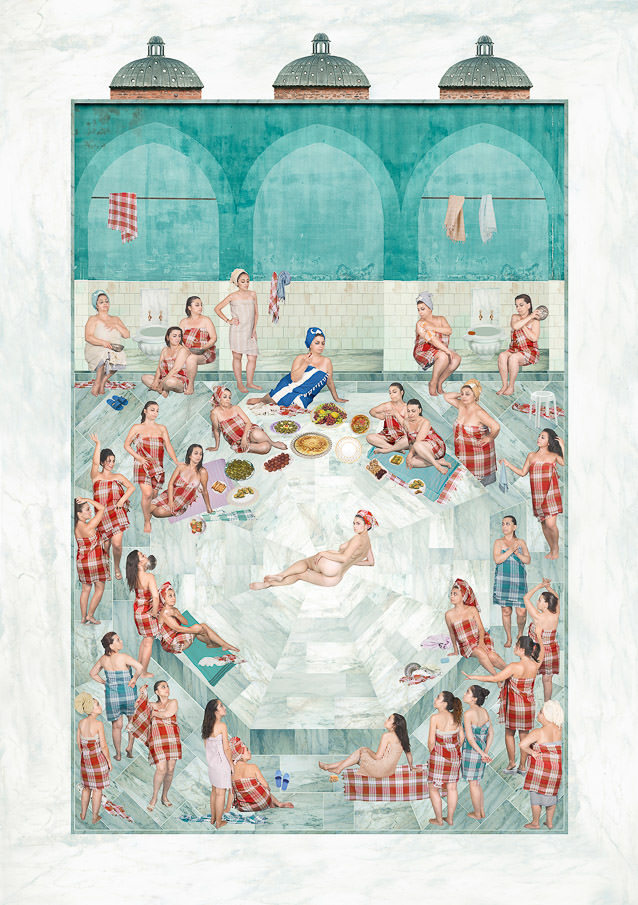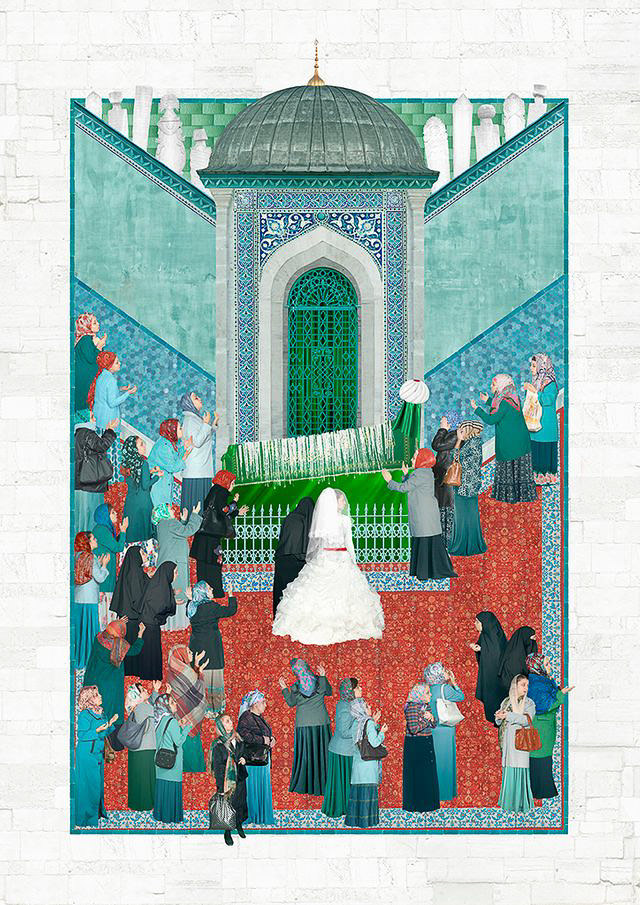Lens-based artist Sinan Tuncay’s first solo show, I’m sorry, Leyla, brings his self-reflective photography and video projects together. The four bodies of work, present a gender fantasy that is conventionally shaped by the Turkish cultural landscape. The staged images, pursue the conflict between East and West through the melancholy of the Turkish nostalgia. Projecting gigantic to miniature, public to private; the show is an attempt to explore the subject of gender as it is fetishized around female virginity and the heteronormative image of masculinity.
10-channel video installation, Mommy’s Not Home (2013), explores the desired interior passiveness of femininity, through the 1960’s Turkish melodramas. Since the TV screen has introduced a semi-intimate layer to the movies when they had been exhaustively broadcast late after, in the 1990s, this work is presented in the form of a television set. Ten staged videos, that are displayed on various TVs, reflect female characters, who got stuck in their roles within small scale replicas of the original film sets. Being restrained in the boxed physicality of a TV, the work explores the claustrophobic nostalgia in which melodramatized culture confines women.
Public Intimacy (2015), as a series of photographic tableau, reflects marital obligation and its ceremonial order in the Turkish tradition. The constant surveillance of virginity and inevitable examination of potency, are depicted through compositional hierarchies. As each photograph is a composite of both taken and found images; all figures are slight variations of a male and female figure, whose faces are juxtaposed on various postures to embody anonymous stereotypes. Meticulously collaged imagery seeks to apply a contemporary approach to manuscript illustration, the major medium of Ottoman pictorial art, in which, figurative representation was broadly restricted.
Fraternal (2016), screened in three channels, is an ongoing video project that pursues institutionalized integrations of male sexuality through the conformist narcissism of boyhood. Competitive aggression within boys comes into play as a form of a homoerotic love object, that, serves to both hide and reveal the fear of unmanliness. The manly acts are projected on photographic settings in order to recall the repetitive structure of remembered images and insert an additional layer to the tableau.
Lastly, Leyla (2016), is a self-portrait to embody an ultimate object of desire, that is shaped around feminine idealism and widely imposed by bygone cinematic imagery. As the exhibition title addresses the cult Turkish Music piece, a heartbreak song that’s written for and to Leyla; the portrait reveals the guilt of unmanly pleasures, through a fantasized image of her.
The song is significantly performed by Turkish queer nightclub star, Zeki Muren, whose flamboyant vocals and gender-bender persona took an essential role in the prefabricated Turkish modernization process. Departing from Muren’s crisp and delicate voice, the work seeks to combine visual spectacle with aural intimacy of gender.
The overall show is an ensemble of both still and moving imagery, as well as the eclectic product of the cultures that Tuncay has constantly experienced. His work explores gender through the conflict between modernity and religious conservatism and East-oriented cosmopolitanism and West-oriented Turkish nationalism. Combining various scales in order to create nonexistent environments, his work aims to challenge the single-point perspective, while keeping the flatness of collage. Individually taken images, constitute an ultimately composed fantasy where the constructed nature of gender is constantly reproduced.






